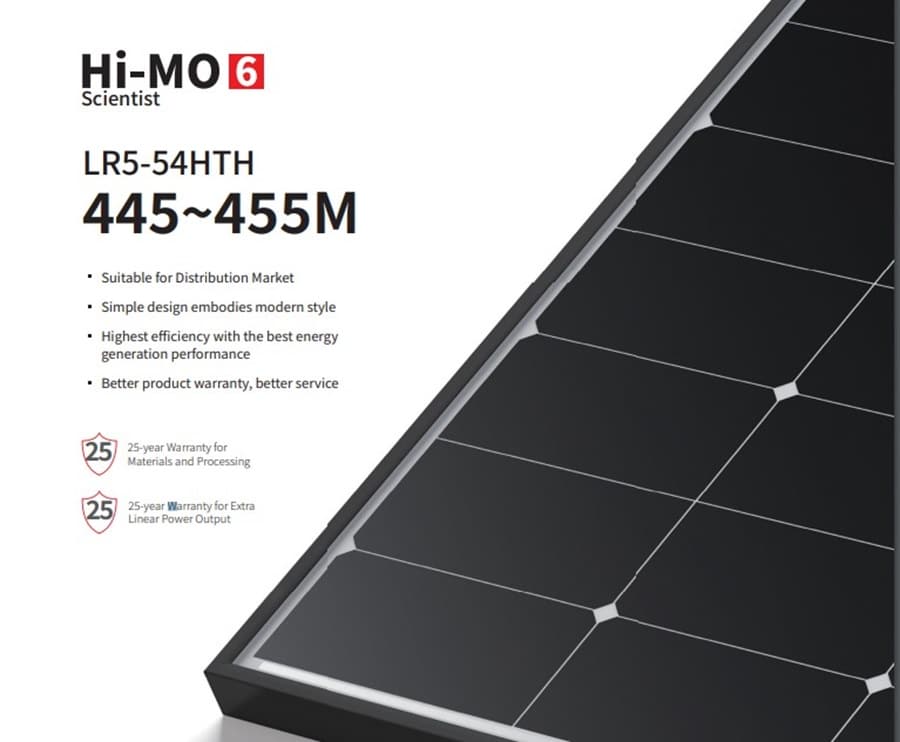Australia’s diverse and often extreme climate makes selecting the right solar panels crucial for long-term performance and savings. Residents in high-temperature regions must ensure that solar panels are designed to endure and thrive in intense heat.
At Energy Matters, we aim to empower you with the knowledge to maximise your solar investment while championing sustainability.
Energy Matters TV Show: Your questions answered!
Await the release of the Energy Matters TV show, our brand-new television programme, which will debut in 2025!
Energy Matters TV Show is your go-to source for solar expert advice on energy efficiency, sustainability, and renewable energy. Roshan Ramnarain, our CEO of Energy Matters, will share his knowledge of combining stunning home designs with sustainability and helping solar energy savings.
Have a solar energy question? Submit your video question and get featured on the show!
Why heat resistance matters in solar panels
Solar panels operate differently in high-heat environments compared to milder climates. While they rely on sunlight to generate electricity, extreme heat can reduce efficiency. This phenomenon, known as the temperature coefficient, affects how much power a solar panel loses with every degree rise above its optimal operating temperature.
High-heat areas in Australia, such as northern Queensland, central Australia, and the outback, frequently experience temperatures above 40°C. Investing in the best solar panels with heat resistance ensures optimal performance and longevity for homeowners and businesses in these regions.
Key factors to consider for solar high heat in Australia
When selecting solar panels for high-temperature environments, consider the following:
Solar panel efficiency:
Solar panel efficiency is studied in a controlled laboratory setting, with a constant temperature and light.
- High-efficiency panels: Solar panels with high-efficiency ratings can generate more electricity even in less-than-ideal conditions.
- Temperature coefficient: A lower temperature coefficient indicates a smaller decrease in efficiency as the panel temperature rises.
Solar panel durability:
- Robust construction: Look for solar panels with sturdy frames and tempered glass to withstand harsh weather conditions, including hail and strong winds.
- UV resistance: High-quality solar panels should resist UV radiation, which can degrade materials over time.
- IP rating: An IP rating indicates a solar panel’s resistance to dust and water ingress. A higher rating is ideal for outdoor installations.
Solar panel heat resistance:
- Heat dissipation: Efficient heat dissipation is crucial for maintaining optimal performance. Solar panels with advanced cooling technologies, such as cell gap technology or specialised coatings, can help reduce heat buildup.
- Solar fire safety: Ensure the solar panels are certified to meet fire safety standards, especially in regions prone to bushfires.
- Warranty and lifespan: Solar panels designed for high-heat areas often have extended warranties (typically with a 25-year performance warranty) and are built to last in harsh environments. This ensures peace of mind and a better return on investment.
Additional tips for optimal performance in high-heat areas
Professional installation: Proper solar panel installation by a qualified installer is essential to ensure optimal performance and long-term reliability.
Regular maintenance: Schedule periodic cleaning to remove dust, dirt, and debris that can accumulate and hinder performance.
Shade management: Minimise shading from trees, buildings, or other obstructions to maximise energy production.
Invest in quality components: Pair your solar panels with high-quality solar inverters and mounting systems that complement their durability and efficiency.
Embrace the energy efficiency revolution by upgrading your solar systems and adding a battery or solar inverters with Energy Matters. Energy Matters helps Australian home and business owners receive personalised solar quotes through our large network of high-quality solar installers.
With our 3 free solar quotes, you can compare plans from pre-qualified and vetted installers in your area and find the perfect solution for your home and business.
Top picks for best solar panel heat resistance in Australia
Here are some of the best solar panels suited for high-heat areas in Australia:
1. SunPower Maxeon 6
Known for its industry-leading efficiency and low-temperature coefficient (-0.29%/°C), SunPower Maxeon panels deliver exceptional performance in extreme heat. With a 25-year warranty and proven durability, they’re a top choice for solar high-heat Australia.

2. REC Alpha Series
REC’s Alpha Series combines advanced technology with robust construction. With a power temperature coefficient of -0.26%/°C and premium warranties, these panels excel in heat-intensive areas.

3. LONGi Hi-MO 6
LONGi’s Hi-MO 6 panels are renowned for their efficiency and resilience. Their innovative design ensures optimal performance even in hot conditions, making them ideal for high-heat locations.

To learn more about the best solar panels in Australia, visit our page “Best Solar Panels In Australia: Brands To Consider.”
Benefits of choosing the best solar panels for high-heat areas
- Enhanced efficiency: High-performance panels retain their efficiency despite soaring temperatures.
- Long-term savings: Durable panels reduce repair and replacement costs, ensuring better returns on your investment.
- Eco-friendly energy: Reliable solar systems support sustainable energy goals by consistently generating clean power.
Energy Matters: Empowering your solar journey
Ready to harness the power of the sun with confidence? Let Energy Matters guide you through selecting the most heat-resistant and durable solar panels for your location. Energy Matters is one of Australia’s most trusted solar quotes due to our high customer satisfaction and industry recommendations. Our team of solar experts can help you get up to 3 FREE solar quotes from pre-qualified and vetted solar firms in your area. Contact us today and take the first step toward a greener, more energy-efficient future.


















